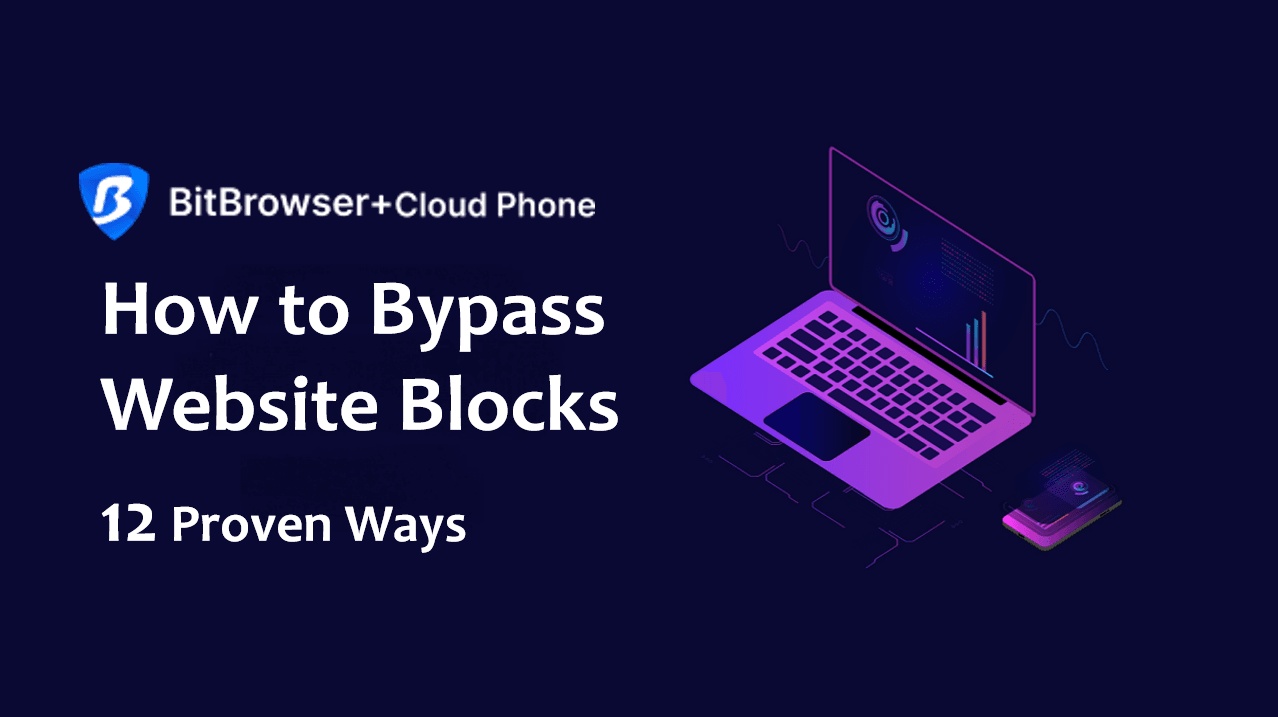


Boost Your Ecommerce Revenue with Tech SEO & Antidetect Browsers
 2025.07.29 22:38
2025.07.29 22:38
In the world of eCommerce, standing out from the crowd is essential. With fierce competition, especially in highly competitive niches, businesses must employ advanced strategies to drive traffic, improve conversions, and boost sales. Two crucial tools that have recently gained attention for their role in this process are Tech SEO and Antidetect Browsers.
- What is Tech SEO?
Tech SEO involves optimizing the technical aspects of a website so search engines can crawl, index, and rank it effectively. For eCommerce, this means ensuring your site performs well across all devices and provides an exceptional user experience. - What Are Antidetect Browsers?
Antidetect browsers are special web browsers designed to mask a user's identity, location, and device data. They are primarily used for privacy, security, and avoiding detection by websites or advertisers.
But how can these two seemingly different tools help boost eCommerce sales? Let’s dive deeper.
Understanding Tech SEO in eCommerce
Key Components of Tech SEO for eCommerce Websites
Tech SEO focuses on ensuring that a website meets the requirements of search engine algorithms. For eCommerce, this goes beyond just keywords. You need to address various technical elements to keep both search engines and customers happy.
The Importance of Site Speed and Performance
In today’s fast-paced world, nobody has time for slow-loading websites. In fact, page speed directly impacts both user experience and SEO rankings. Slow pages lead to high bounce rates, which negatively affect your SEO performance. Optimizing page load times using strategies like image compression, caching, and server-side optimization can make a huge difference.
Mobile Optimization: The Mobile-First Approach
With over 50% of eCommerce traffic coming from mobile devices, it’s no longer an option to have a mobile-friendly website. Google now uses a mobile-first indexing strategy, meaning your site’s mobile version is the one it primarily ranks. Ensure your eCommerce store is responsive, quick to load, and easy to navigate on smaller screens.
Schema Markup: Enhancing Search Visibility
Schema markup is a form of structured data that tells search engines what your content is about. For eCommerce websites, implementing product schema is essential. This helps search engines understand and display key information such as product price, availability, and reviews directly in search results.
Internal Linking for Better Navigation
A well-structured internal linking strategy allows users and search engines to easily navigate your website. Link related products, categories, and blog posts together to improve discoverability and distribute page authority.
The Role of Canonical Tags in eCommerce SEO
With hundreds or thousands of product variations (sizes, colors, etc.), eCommerce sites can face duplicate content issues. Using canonical tags ensures that Google indexes the correct version of your page and prevents duplicate content penalties.
How to Implement Tech SEO for eCommerce
Conducting a Technical SEO Audit
Start by conducting a comprehensive audit of your site to identify issues like broken links, missing metadata, slow pages, or technical errors. Use tools like Google Search Console or Screaming Frog to get detailed reports on your website’s health.
Page Speed Optimization Tips
- Compress images: Use tools like TinyPNG or ImageOptim to reduce image sizes without losing quality.
- Enable compression: Enable GZIP compression on your server to minimize file sizes.
- Leverage browser caching: Set proper caching rules to store resources in the user’s browser for faster loading.
Mobile Optimization Checklist
- Responsive design: Your website should adapt to various screen sizes and orientations.
- Optimize touch elements: Ensure buttons are large enough and well-spaced for mobile users.
- Test performance: Use tools like Google PageSpeed Insights or Lighthouse to evaluate and improve mobile performance.
How to Use Structured Data (Schema)
Integrating schema markup into your product pages enhances the visibility of your products in search results. Use structured data for:
- Product names
- Prices
- Ratings and reviews
- Stock availability
- Images
Fixing Crawl Errors and Broken Links
Regularly check for crawl errors and 404 pages using tools like Google Search Console. Fix any broken links or set up proper redirects (301 redirects) to preserve SEO equity.
What Are Antidetect Browsers?
Definition and Purpose of Antidetect Browsers
Antidetect browsers are specialized browsers that allow users to mask their real identity and browsing behavior. They make it difficult for websites or ad networks to track your activity by using different IP addresses, device fingerprints, and other identifiers.
How Antidetect Browsers Work
These browsers work by creating a "clean" environment for browsing, allowing you to simulate multiple sessions with different device configurations, IP addresses, and geolocations. This helps bypass tracking technologies like cookies, browser fingerprints, and other forms of user profiling.
Key Features of Antidetect Browsers
- Multiple profiles: You can create and manage multiple identities or accounts from a single device.
- Location spoofing: Mask or change your IP address to appear from a different country or region.
- Device fingerprinting bypass: Avoid being tracked through device attributes like screen size, resolution, and OS.
How Antidetect Browsers Can Help Boost Ecommerce Sales
Managing Multiple Accounts and Campaigns
Antidetect browsers are often used by marketers to manage multiple accounts on platforms like Facebook, Amazon, or Google Ads. By masking their identity, they can run several campaigns without being flagged or banned.
Protecting Customer Data and Privacy
By using antidetect browsers, eCommerce businesses can ensure their customers' browsing data is kept private. This can enhance trust and boost conversions, especially when dealing with sensitive transactions.
Geotargeting and Location Masking
Antidetect browsers allow you to simulate traffic from various regions. This is particularly useful for businesses testing different pricing models or region-specific promotions.
Bypassing IP-based Restrictions
Some eCommerce websites limit access based on IP addresses. Using antidetect browsers, you can easily bypass these restrictions and test how your website performs in different locations or scenarios.
Testing and Optimizing Campaigns Anonymously
With antidetect browsers, you can test ads and landing pages without revealing your true browsing history. This allows for cleaner data and more accurate optimization of marketing campaigns.
Avoiding Click Fraud and Protecting Ad Spend
By masking your IP and browser information, antidetect browsers help avoid fraudulent clicks or false impressions in paid advertising campaigns.
Combining Tech SEO & Antidetect Browsers for Maximum Impact
The Power of A/B Testing with Privacy
A/B testing is essential to improving conversions. When using antidetect browsers, you can run tests without your personal browsing history influencing the results. This gives you a clear picture of what works and what doesn’t.
How to Improve Conversion Rates Using Both Tools
By combining Tech SEO with antidetect browsers, you can improve both the visibility and privacy of your campaigns. Tech SEO helps drive organic traffic, while antidetect browsers ensure that your testing and marketing efforts are accurate, fair, and secure.
Practical Use Cases of Combining Tech SEO with Antidetect Browsers
- Ad targeting and optimization: Use antidetect browsers to test various ad versions in different markets.
- Site performance analysis: Run performance tests using different profiles to see how users from different regions interact with your site.
Conclusion
Tech SEO and you can try with our antidetect browsers is BiBtbrwser offer a unique combination of tools for boosting eCommerce sales. Tech SEO ensures that your website is optimized for both search engines and users, while antidetect browsers give you the freedom to test, protect privacy, and optimize campaigns without the risk of detection. Together, these strategies provide a comprehensive approach to increasing traffic, improving conversion rates, and maximizing ROI.
FAQs
1. What is the difference between Tech SEO and traditional SEO?
Tech SEO focuses on the technical aspects of your website (site speed, mobile optimization, schema markup), while traditional SEO often deals more with content creation and link-building.
2. Can antidetect browsers help avoid ad fraud?
Yes, antidetect browsers help you avoid click fraud by masking your IP address and preventing fraudulent clicks on ads.
3. How can I ensure my eCommerce website is mobile-optimized?
You can use responsive web design, optimize images, and test your site’s mobile performance with tools like Google PageSpeed Insights.
4. Is it legal to use antidetect browsers for eCommerce?
Yes, using antidetect browsers for privacy and testing purposes is legal. However, using them to bypass terms of service or commit fraud is not.
5. How often should I conduct a Tech SEO audit?
It’s recommended to perform a Tech SEO audit at least once every 3-6 months to ensure your site remains optimized.
 petro
petro
 Multi-Account Management
Multi-Account Management Prevent Account Association
Prevent Account Association Multi-Employee Management
Multi-Employee Management



